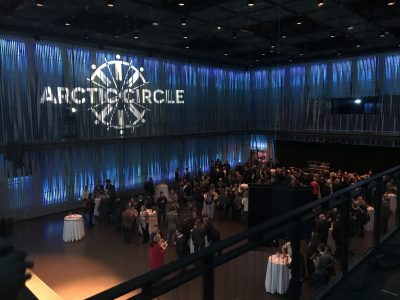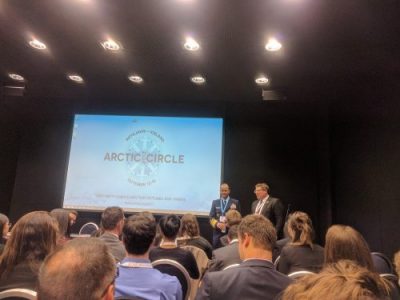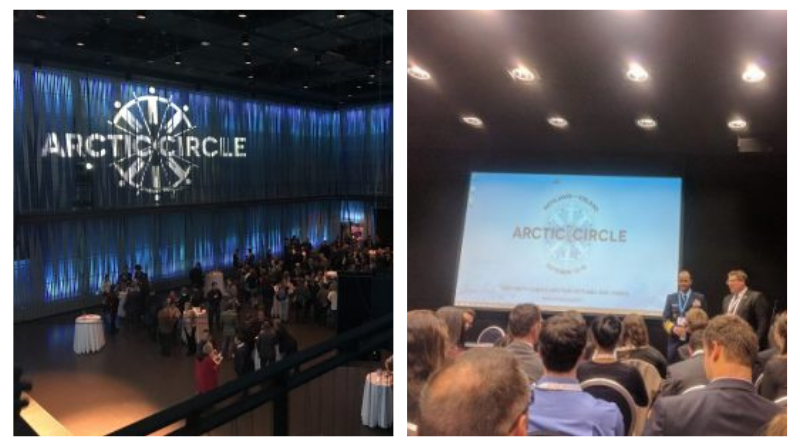Technology in the Arctic
 A few weeks ago, I attended the Arctic Assembly conference in Iceland. The conference had a surprisingly wide array of panels on all topics related to the Arctic from security to development among indigenous populations to sustainable tourism. Amidst the multiple panels, movies, art displays, and wonderful Icelandic food, one event stood out as especially exciting: the Arctic Innovation Lab put on by the Harvard Kennedy School of Government, the Iceland School of Energy at Reykjavík University, University of Greenland, the Fletcher School and the University of Iceland.
A few weeks ago, I attended the Arctic Assembly conference in Iceland. The conference had a surprisingly wide array of panels on all topics related to the Arctic from security to development among indigenous populations to sustainable tourism. Amidst the multiple panels, movies, art displays, and wonderful Icelandic food, one event stood out as especially exciting: the Arctic Innovation Lab put on by the Harvard Kennedy School of Government, the Iceland School of Energy at Reykjavík University, University of Greenland, the Fletcher School and the University of Iceland.
Over the course of an hour and a half, twelve graduate students from the participating schools shared their ideas about how to address some of the most pressing problems in the Arctic, now and in the future. The students then sat down with audience members to discuss how best to implement their ideas in the real world. The ideas ranged from very wide-reaching (creating an Arctic investment index) to targeting more specific communities (changing Greenland’s education system to be more inclusive of indigenous populations).
 Many of the ideas directly involved the use of technology. One student advocated for the use of drones to support remote Arctic communities. Drones could be used for surveying, mapping, research, and even search and rescue missions. Another student was building a platform for providing digital jobs to rural and indigenous communities. The platform was based on the idea of creating small, learnable jobs that could be done from anywhere with an internet connection. The student believed the Arctic would be a perfect test case for this type of application because jobs can oftentimes be very dependent on resources or weather (like fishing). He also thought that it would be a great way for communities to bring in money through other means.
Many of the ideas directly involved the use of technology. One student advocated for the use of drones to support remote Arctic communities. Drones could be used for surveying, mapping, research, and even search and rescue missions. Another student was building a platform for providing digital jobs to rural and indigenous communities. The platform was based on the idea of creating small, learnable jobs that could be done from anywhere with an internet connection. The student believed the Arctic would be a perfect test case for this type of application because jobs can oftentimes be very dependent on resources or weather (like fishing). He also thought that it would be a great way for communities to bring in money through other means.
The ideas at the innovation lab only scratched the surface of how technology can be useful in the Arctic and, vice versa, how the Arctic can be a fantastic test case for new innovative technologies.
– Callie Burke, MALD ’18

